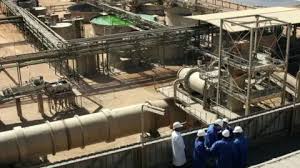
Niger’s ruling military junta has announced plans to nationalise the country’s largest uranium mining company, marking a sweeping shift in the nation’s mining sector and asserting state control over its critical resources.
In a decree issued late Wednesday, the National Council for the Safeguard of the Homeland (CNSP) declared its intention to transfer full ownership of the uranium producer to the state, citing the sector’s strategic importance to national security and economic independence. The junta argued that the move will ensure that Niger’s uranium wealth benefits its citizens directly.
The company in question, widely recognised as one of the world’s leading producers of uranium, has operated under a mixed ownership structure involving the state and a consortium of foreign mining firms. Under the nationalisation plan, foreign partners are expected to be bought out or transition to collaborative agreements with the government.
A spokesperson for the junta stated, “This nationalisation is a step towards reclaiming our sovereignty and redirecting the revenue from our strategic industries to public development.” The government indicated that proceeds from uranium would be allocated to infrastructure projects, health care, education, and security programs.
Industry analysts warn the move could disrupt longstanding contracts with international partners and producers, triggering legal and diplomatic challenges. Investors may interpret the action as a signal of increasing political risk in the region, which could affect future investment in Niger’s extractive industries.
The junta’s decision follows a broader trend of resource nationalism in West Africa, where governments seek greater control over mineral assets. The announcement arrives amid pressure from regional economic blocs and global actors, who are currently evaluating Niger’s revised investment climate in the wake of the 2023 coup.
As Niger’s military rulers consolidate economic levers, they are expected to unveil further measures to assert greater control over strategic sectors. Observers are closely monitoring how foreign firms will respond, what compensation terms will be proposed, and how existing bilateral agreements will be renegotiated under the new framework.
The nationalisation effort underscores Niger’s ambitions to channel mining revenues into public coffers but its success will depend on the junta’s ability to manage investor relations and meet international obligations in a rapidly evolving geopolitical landscape.

